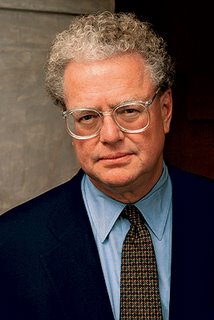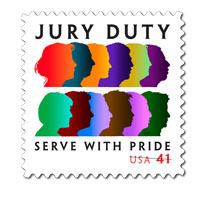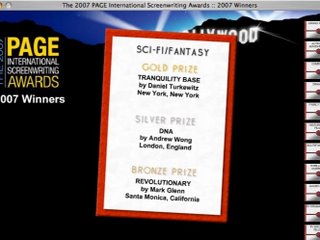 The New York Personal Injury Law Blog brings you the week that was:
The New York Personal Injury Law Blog brings you the week that was:
The pre-litigation section this week is topped by lawyers, and not their clients, this week…
Miami attorney Louis Robles was headed to his own criminal trial, and MassTorts Prof Howard Erichson explained why no one wanted to try the case. Which is one reason it was then resolved with a plea that includes a 15-year sentence (ABA Journal). Along the same lines, Howard Bashman rounds up posts on the guilty plea of class action king William Lerach; And today co-class-action King Melvyn Weiss was indicted , though Scott Greenfield is wondering where the big crime is;
Less prominent lawyers are also in the bad side of the news: Three New Jersey attorneys have plead guilty to orchestrating false insurance claims (New Jersey Law Journal). As always, the rotten apples in any particular group always make the rest of the group look bad. (On a side note, I wonder if a lawyer wearing scuba gear while filing a complaint might also belong here);
Point of Law points to a series in the San Francisco Examiner on the profession; which Robert Ambrogi at Law.Com Blog calls “blatantly one-sided;”
Ronald Miller discusses the way that insurance companies sometimes race to the door of a negligence victim to get a quick settlement, often offering pennies on the dollar. Does Miller think that’s a good idea? Guess first, then read. He also wonders if medical malpractice verdicts are fair to doctors;
No round-up would be complete without something on tort “reform” and this one is no different with Ken Shigley reprinting a critique from his friend Jay Cook of Athens, GA;
It’s not a lawsuit yet, but you can bet it will be shortly: The tasering of audience member Andrew Meyer during a speech by John Kerry has lit up the Internet. Why a taser was needed when the guy was already on the ground being held by six cops will no doubt be the subject of endless discussion, which promptly started (Simple Justice, Above the Law, Althouse, Concurring Opinions). Other issues, such as whether he had committed such a grave transgression as to deserve his initial removal and of Senator Kerry’s response are also likely to fill a few blog posts going forward. And it will certainly fill the airwaves, at least until the next celebrity arrest or missing blond-haired white girl;
Counterfeit drugs is an issue I cover from time to time. So add to this round-up the busting of a massive counterfeit drug operation in the U.K. (FightTheFakes) as well as more on drug diversion here in the United States, brought to you by The Whistleblower Law Blog and Pharmafraud;
In the Safety Department, Bob Kraft discusses a new radar being used in Texas: It catches tailgaters, not speeders. Hey, bring one to my neck of the woods!
Now on to the actual litigation…
Voir dire in New York is pretty straightforward, and often very fast paced (questioning 30 jurors in 60 minutes will do that). There is little time for shtick. Not so elsewhere as Walter Olson discusses at Overlawyered in the BP explosion case where attorney antics clearly soared over the line of legitimacy;
TortsProf Bill Childs has a particularly interesting wrongful death case against U-Haul (though “interesting” is most likely not the word the bereaved family would use);
In White Plains, New York, a man who served 16 years in prison for a killing he did not commit has brought suit in federal court against the police and medical examiner for fabricating evidence;
From the Department Of The Weird, you would think that a Nebraska State Senator suing the Lord Almighty would take top honors, or perhaps that He (or She) sent a messenger to answer the suit. But you would be wrong. On the Pharm reports that a man woke up during his own autopsy. Oops.
Just because a lawsuit starts doesn’t mean you will get to the jury: The family of Rachel Corrie — the Washington state activist that was killed by a bulldozer in Gaza in 2003 while the Israel Defense Forces were conducting activities — had their suit against Caterpillar dismissed by the Ninth Circuit Court of Appeals. Mary Whisner at the Washington School of Law explains the basis of the dismissal;
In the Department of Merck: City and State of New York have sued Vioxx maker Merck alleging fraud. Merck is also in the news because a trial is starting in Florida regarding Vioxx (LaBovick Injury Law Blog) and, as Tony Sebok reports from his FindLaw column, the New Jersey Supreme Court decertified a Vioxx class action (part 1 of 2);
I’ve been following the September 11 suits coming up for trial in New York, and a bunch more just settled. There are 21 cases to go set for trial in the coming weeks;
In the Department of Appeals, a Florida doctor admits he gave false testimony at a trial (via Kevin, M.D.).
- Blawg Review #126 is at Small Business Trends;
- John Day has a new book coming out on Tennessee tort law;
- Bruce Kluger and David Slavin planted a microphone in the home of Alberto Gonzalez and caught this conversation with his wife (audio only, office friendly).
(Eric Turkewitz is a personal injury attorney in New York)




